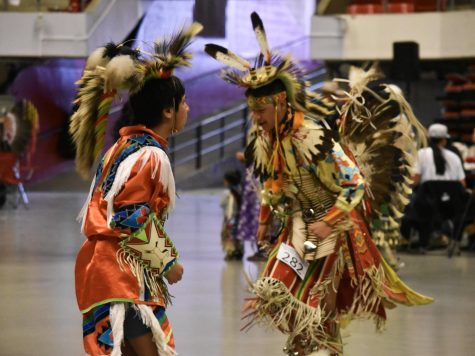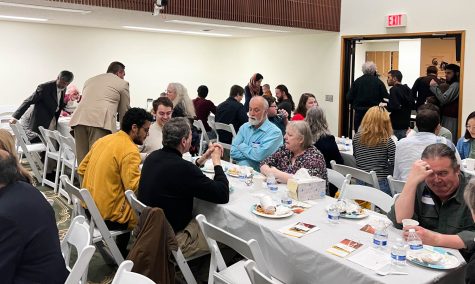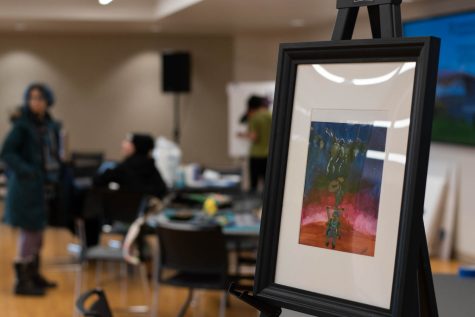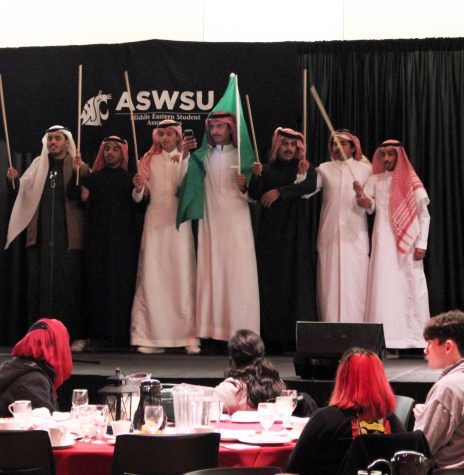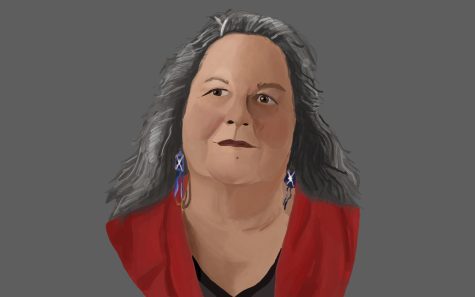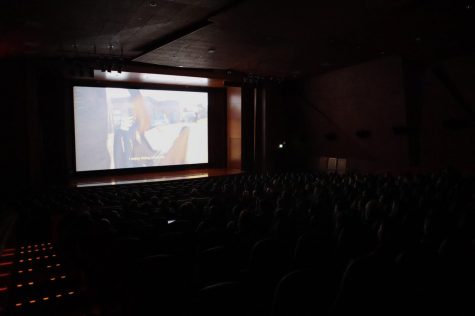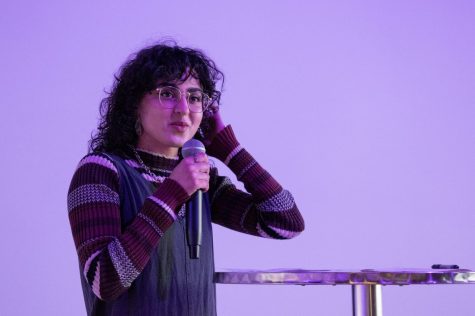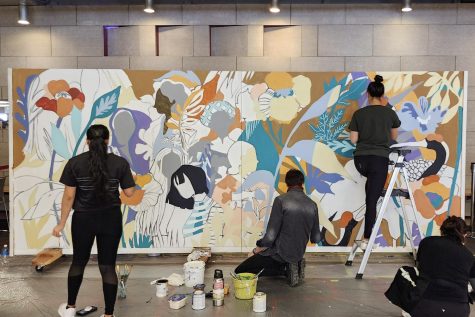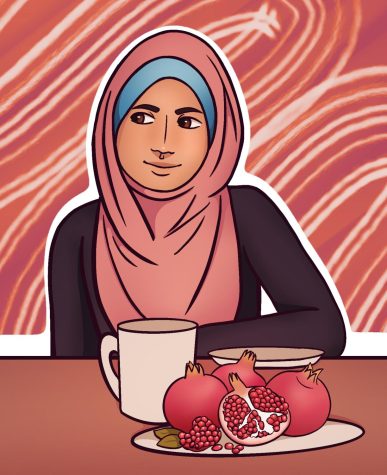Middle Eastern students host Arabian Nights event
April 2, 2017
{{tncms-asset app=”editorial” id=”d84b7bb4-1828-11e7-931b-df88d519f2cd”}}
Arabian Nights, previously known as “Middle Eastern Night,” brings a range of Arabic and Middle Eastern cultures to WSU.
The Middle Eastern Student Association (MESA) teamed up with other Middle Eastern groups around campus this year in celebration of their culture. This includes the Saudi Student Club, the Muslim Student Association, the Arabic Language & Cultural Organization, the Omani Student Association, and the Libyan Student Association, said MESA president Jihad Al Ojaili.
Named after the English translation of One Thousand and One Arabian Nights, MESA wanted to display aspects of cultures from all around the Middle Eastern region, he said.
{{tncms-asset app=”editorial” id=”1db92b6c-1831-11e7-9583-674d13ceb5ab”}}
Guests participated in a questionnaire game regarding Middle Eastern culture. Each table had a question sheet, which they turned in during dinner. Questions ranged from Greek colonies in Libya to the number of Provinces in Saudi Arabia.
The evening started with a speech thanking the participating clubs and organizations and a brief explanation of the mission of the event. Middle Eastern and North African cultures make up 20 percent of the world population, the speaker said.
There was an award ceremony, starting with Palouse ProActive organization. Reverend Steve Van Kuiken and Charles Weller, who teaches about Muslim culture at WSU, each received a golden award for their fight against injustice and discrimination, called “Cougars against hate, extremism and terrorism awards.”
Fadumo Ali, recognized as Undergraduate Student Woman of Distinction of WSU, received the silver award for her article addressing current anti-Muslim sentiments in the U.S.
The second speaker informed attendees about the $1,500 already raised for displaced Syrian Refugees and covered the importance of practicing love instead of hate.
This was followed by a skit showcasing the tragedy and hardship of coming from a war-torn country. The skit featured two little girls and their mother, who just came home from school, where they hid from bombings and attacks, as heard on the soundtrack. From there, the scene switched from dialogue to music and movement, and the mother was separated from one of her children as she sought help.
A video on history of whirling dervishes by the Mevlevi Order of America came next, featuring 13th century poet Rumi and dervish Shams-e Tabrizi, credited as Rumi’s spiritual instructor. A live whirling dervish dance followed, as three performers made their way on stage and demonstrated the traditional dance.
A music performance occurred after, during which audience members occasionally clapped along to the rhythm of the music. The first song was a completely instrumental piece, while the following song had a singing component.
The Baharat! Dance Company performed a variety of dances from Egypt and the Arabian Gulf. The music they performed to, called Muwashshat, encompasses a form of classical Arabic poetry as well as a music genre.
The Mevlevi Sema ceremony in the tradition of the Mevlevi Order came after, followed by more live Arabic music and then dinner.
The Arabian Nights dinner menu featured tabouleh, a Levantine salad; shish tawook, a traditional marinated chicken shish kebab; and baklava, a Middle Eastern sweet pastry.
Al Ojaili said they expect to have another Arabian Nights next year. If he had to change anything, there would be no admission because previous Middle Eastern Nights did not have one. Arabian Night’s admission was $5 for students and $10 general.
Editor’s note: This article has been revised to reflect the correct spelling of a Middle Eastern student group. It is the Omani Student Organization, not the Omari Student Organization. The article has also been revised to reflect the correct spelling of the MESA president’s name. It is Jihad Al Ojaili, not Jihad Al Ojaiji.











